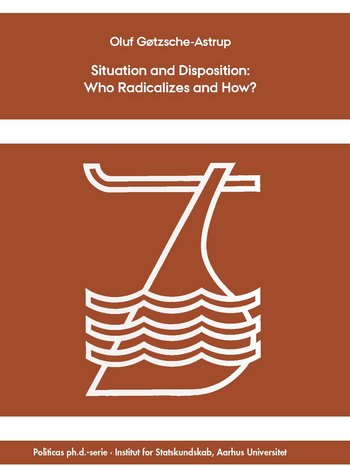Oluf Gøtzsche-Astrup
Situation and Disposition: Who Radicalizes and How?

Political violence challenges our notion of what acts people are capable of in order to push a political agenda. How can we explain why seemingly ordinary people come to support violent political acts or even engage in them? This dissertation takes a cross-disciplinary approach to this question. It synthesizes insights from psychology, political science, and criminology to build and empirically test an integrative framework of the political psychology of radicalization. It uncovers the relative influence of dispositional factors, of situational factors, and of their interplay. Dispositional factors are those factors that reflect relatively stable individual differences. The evidence shows that people who support and intend to engage in political violence are more likely to be closed to new experiences, hostile to others, and possess a callous and Machiavellian personality. Situational factors are those factors that vary with the context in which people find themselves. The results of the dissertation show that pervasive uncertainty related to individuals’ lives and strong partisan political identities drive radicalization. Finally, the dissertation shows that when the factors in these two domains combine, they magnify the effect of each other. While this study points to future dangers, it also indicates how we might reduce the risk of violent radicalization.
![]() Ophavsretten tilhører Politica. Materialet må ikke bruges eller distribueres i kommercielt øjemed.
Ophavsretten tilhører Politica. Materialet må ikke bruges eller distribueres i kommercielt øjemed.